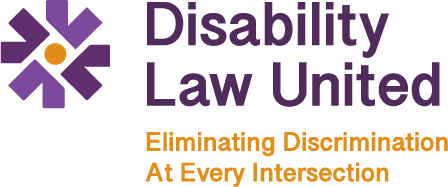For Immediate Release
Thursday, September 19, 2019
COLORADO DEPARTMENT OF CORRECTIONS ORDERED TO PROVIDE VIDEOPHONES TO DEAF PRISONERS
Ruling comes three years after prisoner-initiated lawsuit filed.
DENVER — A Denver federal court yesterday ordered the Colorado Department of Corrections (CDOC) to provide videophones for Deaf prisoners. This order ensures that Deaf prisoners will be able to communicate with their family and friends in sign language. The order comes after three years of litigation initiated pro se by lead plaintiff Bionca Rogers.
Ms. Rogers, a prisoner in the Denver Women’s Correctional Facility (DWCF), can hear, but her mother is Deaf. Before Ms. Rogers was incarcerated, she and her mother communicated by videophone – the now-widespread technology providing telecommunications for deaf people who communicate in sign language.
In late 2015, after arriving at DWCF, Ms. Rogers asked to contact her mother – guardian of her two young children – by videophone. CDOC refused, and told Ms. Rogers that she would have to use the teletypewriter, or TTY, 60-year-old technology that requires both parties to have TTY machines, and to type back and forth to each other. Since her mother – like most Deaf people – did not own a TTY, this required a three-step relay process: Ms. Rogers typed into the TTY; a TTY relay operator spoke her words to a video relay operator; who then interpreted them into ASL. When Ms. Rogers’s mother responded, the three-step process was repeated in reverse.
Because this is a very ineffective way of communicating – in no way equivalent to hearing prisoners speaking by phone with hearing friends and family – Ms. Rogers brought suit, initially under the First Amendment. A year later, Disability Law United attorney Amy Robertson joined the case on behalf of Ms. Rogers, and added as plaintiffs a number of other Deaf prisoners who were experiencing a similarly frustrating, ineffective, and unconstitutional communication situation.
“People in prison cannot be denied the right to communicate with loved ones. People with disabilities or people with disabled family members are no exception. This case ensures that the guidelines established in 1990 by the Americans for Disabilities Act are upheld and that Deaf people and their family members can communicate effectively while incarcerated in the State of Colorado. We are happy for our clients and glad to see that this type of discrimination will be discontinued in these facilities.”
***
Disability Law United is a nonprofit membership organization whose goal is to ensure that everyone can fully and independently participate in our nation’s civic life without discrimination. http://disabilitylawunited.org If you believe you have been denied effective communication because you are Deaf, please contact us at info@creeclaw.org.
